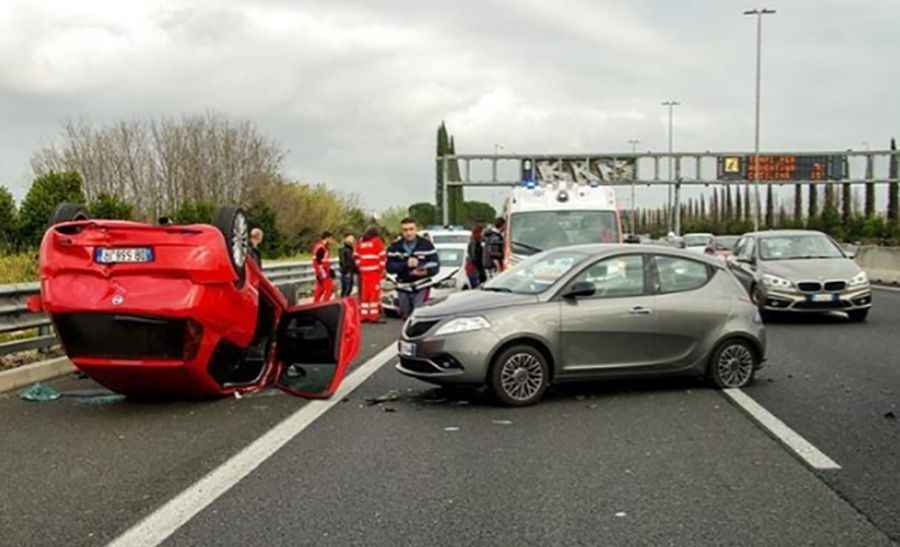What Is Reckless Driving And How Can You Avoid It?
Someone dies on the road every 24 seconds. This is a shocking number, considering that most of these deaths might have been prevented by safe driving.

The National Highway Transportation Safety Administration (NHTSA) believes that a rise in reckless driving is to blame for the 16-year high in traffic fatalities in the United States in 2021.
Driving recklessly most frequently happens while the driver is distracted. The NHTSA estimates that at least 10% of the time, drivers are distracted by their phones when they are behind the wheel. Other types of distracted driving include chatting and texting, eating, taking pictures, putting on makeup, and doing other things.
Things have been worse ever since the COVID-19 pandemic. Despite an 11 percent decrease in miles traveled in 2020, there was a 6.8 percent rise in fatal car accidents. The number of California Highway Patrol speeding penalties issued for exceeding 100 mph during the first half of 2021 was roughly twice as high as before the outbreak. Not just in California but across the country, the surge in speeding and aggressive driving continues to be a cause for concern.
Additionally, there was a rise in fatal collisions by 12% in the first nine months of 2021. This is mainly due to risky driving practices like speeding or not using a seatbelt.
Every driver must be aware of such practices and take action to avoid them.
Examples of Reckless Driving
The basic definition of reckless driving is driving that shows disregard for other people's safety or property. In certain places, the driver's physical and mental health also plays a role in making decisions. The following are examples of reckless driving:
- Driving while under the influence of alcohol or drugs
- Racing and overtaking other vehicles
- Passing on blind curves
- Swerving and lane-changing actions
- Passing school buses with their stop signs down
- Crossing railroad obstacles
- Breaking the stop sign or red light
- Speeding
In some places, irresponsible driving might even include improper seat belt usage.
Reckless Driving Laws and Facts
As with other traffic rules, different states have different definitions of reckless driving. Instead of being treated as a simple traffic violation, reckless driving is frequently classified as a serious crime in several states. It will, therefore, appear on your driving record permanently.
If you're unsure of what constitutes reckless driving in your state, spend a few minutes researching it on the website of the DPS or local DMV. For example, in Florida, fleeing the police is considered dangerous driving. Here are some other examples.
- In Hawaii, the "reckless riding" of an animal is also against the law.
- In Illinois, reckless driving includes purposefully lifting a car into the air.
- In Louisiana, it is considered reckless driving if you fall asleep at the wheel and someone is killed.
- Even if you are driving below the speed limit while racing, it is still reckless driving in Minnesota.
- You don't have to be driving to be convicted of reckless driving in Nevada and New Hampshire. In Nevada, organizing an unlicensed race on a public highway is punishable by penalties and imprisonment. Don't consider placing a bet on which of two pals' cars is faster in New Hampshire. It's also against the law to bet on unofficial races.
- If you don't want to get ticketed for reckless driving in Tennessee, you should avoid doing a wheelie on your motorcycle. People participating in parades moving less than 30 mph are given exceptions.
- Driving recklessly in Virginia means going faster than 80 mph.
Preventing a reckless driving accident
Here are a few safety recommendations to help you avoid accidents:
- Avoid any vehicles or drivers that seem risky at all times. Move over a few lanes and avoid being in the way of a car weaving in and out of traffic, tailgating, or traveling at a high speed.
- Signal risky drivers. If you see a driver driving very carelessly, try to contact the local police. Call the phone number on the back of the truck's trailer to report any irresponsible driving by a truck driver to their company.
- Always fasten your seatbelt, and urge your fellow travelers to do the same. In the event of an accident, seat belts can be quite helpful in reducing injury risks.
Conclusion
Make sure you avoid reckless driving at all costs. Then there are continuous steps you can take to spot risky driving habits and seek customized training to change such habits.